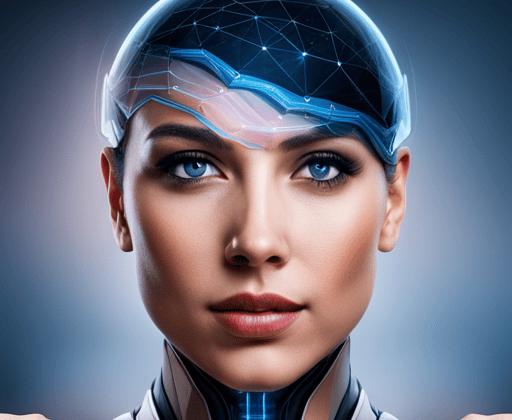
Artificial Intelligence (AI)
What is artificial intelligence (AI)?
Artificial intelligence is the simulation of human intelligence processes by machines, especially computer systems. Specific applications of AI include expert systems, natural language processing, speech recognition and machine vision.
How does AI work?
As the hype around AI has accelerated, vendors have been scrambling to promote how their products and services use it. Often, what they refer to as AI is simply a component of the technology, such as machine learning. AI requires a foundation of specialized hardware and software for writing and training machine learning algorithms. No single programming language is synonymous with AI, but Python, R, Java, C++ and Julia have features popular with AI developers.
In general, AI systems work by ingesting large amounts of labeled training data, analyzing the data for correlations and patterns, and using these patterns to make predictions about future states. In this way, a chatbot that is fed examples of text can learn to generate lifelike exchanges with people, or an image recognition tool can learn to identify and describe objects in images by reviewing millions of examples. New, rapidly improving generative AI techniques can create realistic text, images, music and other media.
AI programming focuses on cognitive skills that include the following:
- Learning. This aspect of AI programming focuses on acquiring data and creating rules for how to turn it into actionable information. The rules, which are called algorithms, provide computing devices with step-by-step instructions for how to complete a specific task.
- Reasoning. This aspect of AI programming focuses on choosing the right algorithm to reach a desired outcome.
- Self-correction. This aspect of AI programming is designed to continually fine-tune algorithms and ensure they provide the most accurate results possible.
- Creativity. This aspect of AI uses neural networks, rules-based systems, statistical methods and other AI techniques to generate new images, new text, new music and new ideas.
Why is artificial intelligence important?
AI is important for its potential to change how we live, work and play. It has been effectively used in business to automate tasks done by humans, including customer service work, lead generation, fraud detection and quality control. In a number of areas, AI can perform tasks much better than humans. Particularly when it comes to repetitive, detail-oriented tasks, such as analyzing large numbers of legal documents to ensure relevant fields are filled in properly, AI tools often complete jobs quickly and with relatively few errors. Because of the massive data sets it can process, AI can also give enterprises insights into their operations they might not have been aware of. The rapidly expanding population of generative AI tools will be important in fields ranging from education and marketing to product design.
Indeed, advances in AI techniques have not only helped fuel an explosion in efficiency, but opened the door to entirely new business opportunities for some larger enterprises. Prior to the current wave of AI, it would have been hard to imagine using computer software to connect riders to taxis, but Uber has become a Fortune 500 company by doing just that.
AI has become central to many of today’s largest and most successful companies, including Alphabet, Apple, Microsoft and Meta, where AI technologies are used to improve operations and outpace competitors. At Alphabet subsidiary Google, for example, AI is central to its search engine, Waymo’s self-driving cars and Google Brain, which invented the transformer neural network architecture that underpins the recent breakthroughs in natural language processing.

